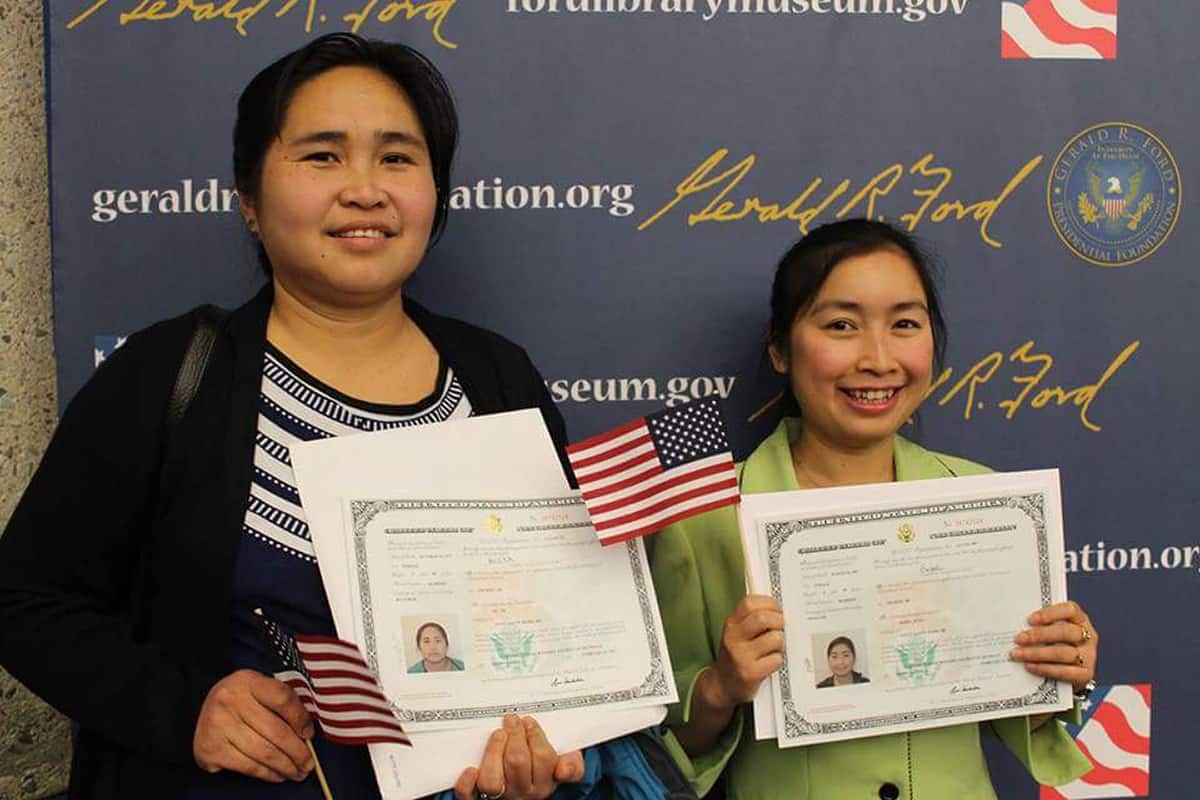USA
The Freedom Inn
Christian Freedom International’s Freedom Inn was a model for immigrant assimilation. This refugee program, along with the collective efforts of caring local Christians, made a monumental difference for the Karen and Karenni refugee families. Many had arrived in the U.S. with little, or no, knowledge of the things we take for granted every day. Plumbing, electric lighting, thermostats, regular and balanced meals, bank accounts, atm cards, vehicles– all were new experiences for them. From the jungles of Burma to the deep snows and blistering cold of Michigan’s Upper Peninsula.
When the resettlement initiative was approved by the U.S. State Department in 2007, CFI successfully fought for the inclusion of Christian Karen and Karenni from Burma. We worked with Former First Lady Laura Bush to convince U.S. and U.N. officials that these persecuted Christians must be resettled. Temporarily moving CFI headquarters to Sault Ste. Marie, Michigan, we established the Freedom Inn in 2009, a renovated motel which became affordable housing.
The room which used to be the motel lobby served as a joy-filled community room for school studies, language classes, celebrations, and even fitness exercises. The motel pool was transformed into a garden where residents grew fresh produce, many of them Asian items that are not usually sold in Michigan. The children thrived, and two won state-level Spelling Bee competitions. The families earned U.S. citizenship, and several purchased homes. Praise God, after decades of living in fear and persecution, these refugees from Burma are finally living in peace and freedom.
In 2020, Freedom Inn accomplished its mission when all of the Karen residents successfully moved on into American life.

End of an era: Freedom Inn closes in the Sault
By Leslie Askwith
Friends and residents of Freedom Inn in Sault Ste. Marie gathered on Saturday to say goodbye to the first long-term American home many of them had known in the United States.
About 35 Karen people who’d escaped persecution by the Burmese government and then life behind a wire fence in Mae La refugee camp in Thailand, have moved on.
“Freedom Inn’s mission here will be finished once the sale of the Inn is finalized,” said Wendy Wright, president of Christian Freedom International (CFI), the organization that converted the motel into apartments and continues their work overseas helping persecuted Christians. She sees the sale of Freedom Inn as evidence of success.
“CFI’s mission here was to provide a community for Karen to live in while integrating into American life,” she said.
Some people questioned the benefit of isolating a group of immigrants rather than integrating them directly into the community. But CFI’s experiment seemed to work.
Residents ventured out into the broader community for jobs, school, church and shopping and returned home to the comfort of being able to speak in a language they understood, share familiar food and wear traditional clothing. The children grew up immersed in the Karen culture, learning from aunts, uncles and elders while branching out to learn the ways of their new country. The Inn provided a safe haven for about 10 years.
Volunteers from the Sault community visited frequently. They taught English and how to drive, helped fill out complicated medical forms and applications for work, read mail, solved insurance problems and helped children with homework. If a need was identified, someone stepped in to fill it.
Community businesses came forward too. For example, War Memorial Hospital found a Karen translation service. Soo Co-op Credit Union gave a class in using credit cards and applying for car loans. The Chippewa County Health Department taught about the dangers of, among other things, too much sugar. Walmart stocked over-sized bags of rice. Bayliss Library bought books in the Karen language.
As time went on, the Karen increasingly participated in life outside the Inn. The children attended school, quickly picking up English. The adults worked — often for companies in the Industrial Plaza. They cleaned up the Seal community garden and were invited to hockey games, baby showers, Christmas parties and barbecues in local homes.
They taught the community too, simple things like how to forage for wild greens and use a machete.
Now, bolstered by a firm introduction to life in the United States, nearly everyone has become a United States citizen and are moving on with their lives. Most have moved away from the Sault — usually to find jobs. Some are out in Nebraska and others in Grand Rapids. A few have remained in the Sault in their own homes.
Mu Eh and Aung Sain and their daughters bought a house here. Mu Eh said, “Aung Sain and I have work. We can pay for our house. My kids are going to school and see the doctor when they need to. And I have friends who will help me. We are happy here.”
A couple of weeks ago, Sunlight Htoo closed the door of her apartment at Freedom Inn for the final time, the only home her children remember. She was the last to leave. She said it was hard.
“People here are nice. If I needed help somebody would always help us,” she said.
